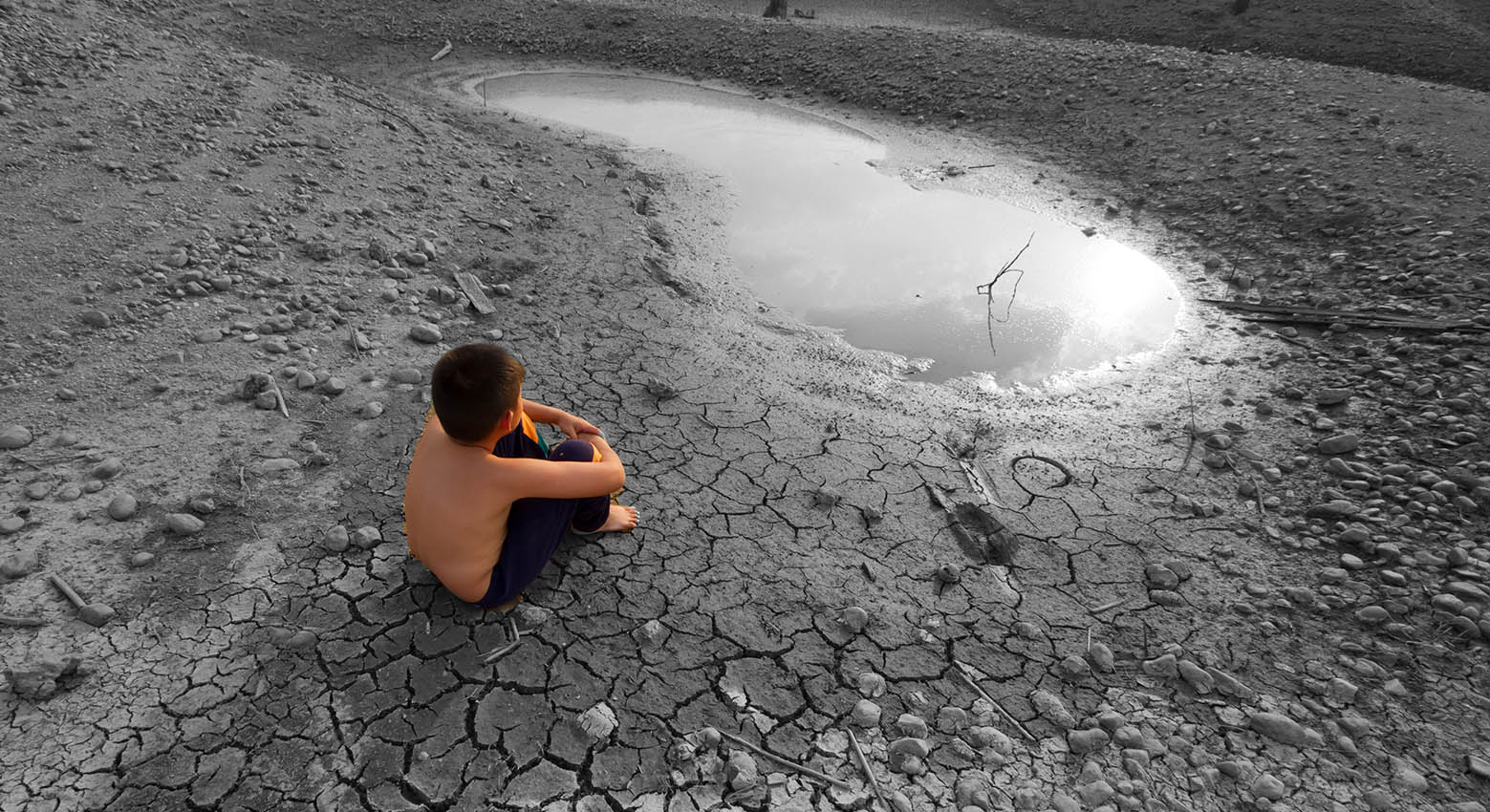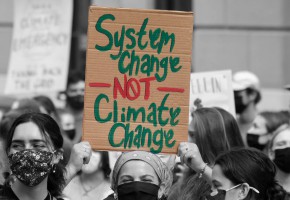

Climate change between disaster compensation and war financing - Habib Maalouf
The term "climate change" can no longer adequately express the gravest issue facing humanity in its history. In recent years, the world has moved from the global question of "climate change" to actual "climate disasters / climate crisis". The Intergovernmental Panel on Climate Change (IPCC) has issued six international reports over more than a quarter century, at a rate of one every five years. They clearly warned of the consequences of climate change by setting scenarios of global warming, forest fires, drought, increasing hurricanes, floods, melting ice, and rising sea levels threatening island countries and the beaches of ancient cities. In addition, they spoke of the increase in the ferocity of viruses and the emergence of new diseases. Finally, they confirmed the responsibility of human civilization and distinguished human-made climate disasters from other natural disasters.
Many international agreements and conferences were held to approach climate change. International negotiations were held under UN auspices, the 27th of which took place in Sharm El-Sheikh. However, the situation remains in a state of continuous decline regarding controlling emissions and avoiding climate disasters. But what happened in Sharm El-Sheikh? What are the prospects for COP28 to be held in the Arab region again, this time in the UAE at the end of this year?
To assess whether the Conferences of the Parties are committed to the Framework Convention on Climate Change of 1992 and the 2015 Paris Agreement, it is necessary first to monitor the extent of compliance with these agreements and the actual policies countries adopt.
Usually, four main pillars are evaluated to measure the extent of commitment. The first is "mitigation," or measuring the extent to which countries are committed to implementing measures to mitigate emissions causing climate change. However, Sharm El-Sheikh showed a setback instead of progress on CoP26 pledges made a year ago in Glasgow. For example, dependence on coal is on the rise due to the Russian-Ukrainian war and the faltering Russian gas transfers to Europe in one way or another. As a result, it led to increased emissions, as confirmed by the UN reports on the "emissions gap" presented at the summit.
The second pillar of "adaptation" is considered the primary option for developing countries to avoid the devastating effects of climate change. It entails that mitigation and adaptation receive the same share of financing from the developed industrial countries (instead of the adaptation share being a quarter). Unfortunately, the developing countries did not succeed in this endeavor during the negotiations.
Regarding the third pillar of "financing," developed countries have not fulfilled their obligations (since the 2009 Copenhagen summit) to pay one hundred billion dollars to developing countries starting in 2020. According to a report by Oxfam International presented at the Summit, the volume of financing provided since 2020 is only about 70 billion dollars (instead of 100 billion every year after 2020). It is mainly in the form of loans, not grants, which adds to the debt of developing countries instead of relieving them.
Finally, the fourth pillar entailed the transfer of environmentally friendly technology from developed countries to developing countries without WTO restrictions and intellectual property rights. However, it is no longer included on the agenda after the matter was left to the private sector and not to countries.
Moreover, the Sharm el-Sheikh summit failed to agree on following up on decisions taken at the Glasgow summit a year ago, especially on laying the foundations for the gradual reduction of fossil fuels in all their forms. Similarly, no progress was made on financing the conservation of forests and controlling their exploitation. Moreover, no more commitments were made to restrict the rise of Earth's temperature to about a degree and a half.
Sharm El-Sheikh's main "achievement" was approving the establishment of a "loss and damage" fund to help developing countries deal with the effects of climate change. This "achievement" came under the pressure of the first evaluation of its kind concerning the losses and damages of the floods that struck Pakistan (right before the summit), estimated at between 30 and 40 billion US dollars. Determining losses from climate disasters usually includes economic losses such as homes, lands, farms, and companies, and non-economic losses such as loss of life, loss of cultural and heritage sites, or loss of biological diversity. However, it does not look into the extinction of priceless species.
It is not the first time that the issue of losses and damages has been raised. One strong example was after the great hurricane that struck the Philippines before the 19th Warsaw Climate Summit in 2013. At that summit, the Warsaw International Mechanism was adopted to address the losses and damages that afflict humanity and the environment, despite the great differences between the countries of the North and the South about the legal nature of this mechanism. However, the US referred the question to international insurance companies. It blocked the debate to determine who bears the historical responsibility for climate change, given that these emissions are accumulated in the atmosphere.
Sharm el-Sheikh was intended to be the "implementation summit," according to the Egyptian leadership presiding over it, aiming to pressure countries to implement their commitments. However, the summit failed in this regard. It could not even follow up on what was established in Glasgow a year ago, especially in gradually reducing investment financing in fossil fuels and retreating from coal. The failure could be attributed to the Russian-Ukrainian war and Europe’s return to coal to compensate for Russian gas. However, putting the issue of losses and damages on the agenda laid the foundations for a new problem or renewed the debate postponed from previous summits. The discussion is between developed and developing countries on how to translate their historical responsibility, which has come to mean that the developed countries bear the responsibility for compensation for the losses and damages they caused during their progress.
These problems begin with classifying disasters and distinguishing between "climatic" and "natural" disasters. Then there is the problem of estimating them and who will make these estimates and determine responsibilities. The following questions also need to be answered: Who should pay compensation? What legal framework or judicial procedures should be resorted to when the responsible countries refuse to pay? How will the distinction be made between historical and emerging responsibilities? If historical responsibility for emissions is adopted because they have accumulated in the atmosphere since the industrial revolution, as a standard year, then the USA would be on top (followed by the EU and Japan). However, the situation changed after 2007 as China became responsible for the highest volume of global emissions that cause climate change. Thus, who will compensate for climate disasters, which the International Association for Loss and Damage has estimated at trillions of dollars? How will the Dubai Summit follow up on these issues at the end of this year, in light of the ongoing near-global wars in which “climate compensation” is spent on armaments and later reconstruction?
Habib Maalouf
Recent publications

ANND Newsletter January 2026 - From Davos to the UPR: Between Promises, and Accountability
Related publications

An Alternative progressive cycle and a revitalized multilateral system - Roberto Bissio

